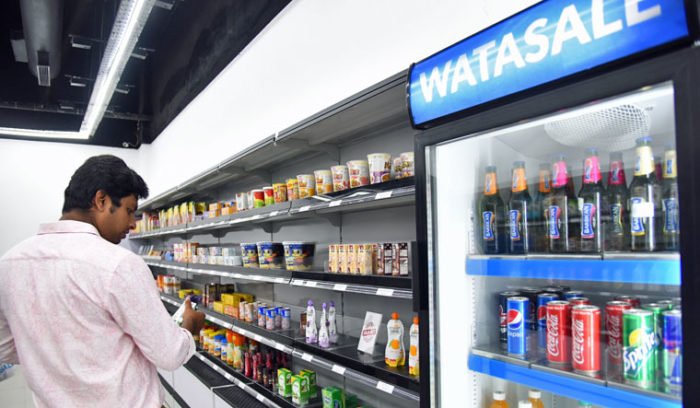There was a time when picking up items from a store was called a clever trick which thieves used but with the growth of technology, the concept of an Autonomous Retail store has become reality even in India. The first store of this kind named Watasale has opened in Kochi. An interesting fact about this store is that it doesn’t have salespeople or cash registers and allows buyers to pick up whatever they need and leave.
Heralding the emergence of #Justwalkout #shopping technology in #India.#watasale is opened for public with no limited hours @kharijohnson pic.twitter.com/KJeLzXgQhq
— watAsale (@watasale) September 1, 2018
Also Read: Robots Might Be Painting Your House Walls Sooner Than You Think
How Watasale works

To shop in Watasale, all customers need to do is download the Watasale app and scan a QR code. This gives them a pass to enter the store. There are two rows of goods in the store which include food and beverage items as well as toiletries. The sensors fixed in these rows automatically take note of the products that are picked up. After customers leave the store, they are a bill is generated on their phone which they can pay online. The company is working to provide a pre-loaded wallet before entering the store which will automatically deduct money once they leave.
Technologies used

Machine learning, Computer vision and Artificial intelligence are the technologies used in this store and even Amazon’s check-out free grocery store in Seattle: Amazon Go also works on the same.
The journey till date
The concept has been transformed into reality by 5 engineers from Kochi who have been working this since 2015. A lot of research and experimenting has been done in the past on different models before this. The store has been launched without any external funding but the company is looking for investments to launch similar stores in New Delhi and Bengaluru. In fact, Watasale has received an investment offer from Mitsui & Co, after the launch in Kochi.
Looking at the way brands are adopting new technologies, it will not be surprising if India’s supermarket chains use this soon.
















